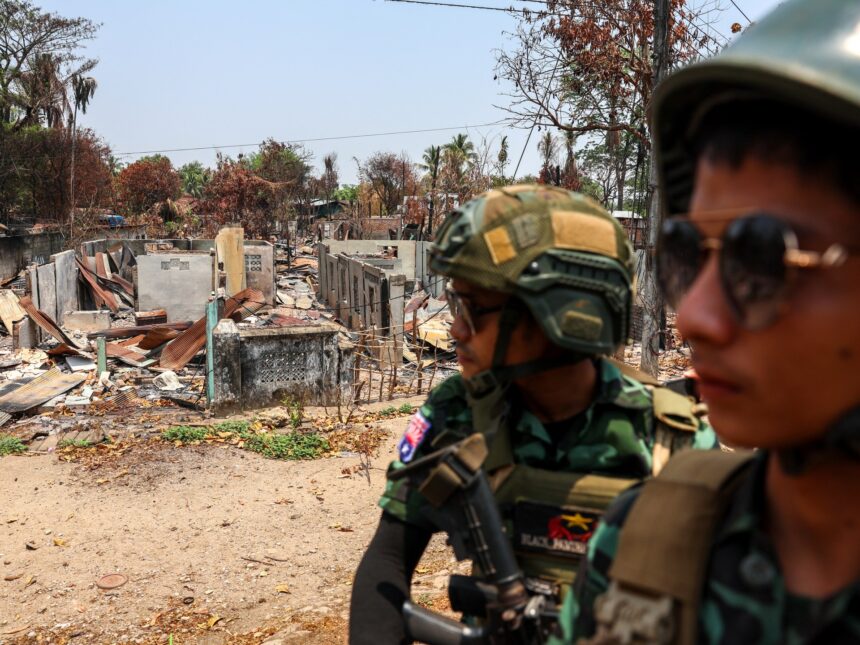Karen State, Myanmar – Thaw Hti stood out among the crowd during a massive march through the streets of Yangon in 2021, calling for a return to democracy after the Myanmar military seized power.
“We carried signboards while they carried guns,” she recalled, reflecting on the events of March 2021.
In the four years since then, much has changed for Thaw Hti and her peers in Myanmar.
Following the brutal crackdown by the military on pro-democracy protests, many young people fled to areas controlled by ethnic armed groups along the borders with Thailand, India, and China.
Thaw Hti, being ethnically Karen, naturally sought refuge with the Karen National Union (KNU), Myanmar’s oldest ethnic armed group fighting for Karen autonomy since the 1940s in eastern Karen State, also known as Kayin State.
In a recent interview with Al Jazeera in Karen State, Thaw Hti expressed her anger towards the military for seizing power and her desire to become a rebel soldier.
However, after undergoing a survival course in KNU territory, including weapons training and self-defense, Thaw Hti realized that as a woman she faced more obstacles in joining the armed struggle.
Instead, leveraging her background in education and fluency in the Karen language, Thaw Hti and her husband established a school accredited by the KNU. They provide education to over 100 children displaced by conflict, teaching them in the Karen language and offering a history curriculum that includes the oppression faced by the Karen people.
As the conflict between ethnic armed groups and the military escalates, with the former gaining control of more territory, the challenge shifts to administering these areas effectively.
In liberated towns like Kyaikdon, administrators appointed by the KNU are working towards providing public services, rebuilding infrastructure, and engaging with the local population for a potentially democratic election in the future.
Despite the difficulties posed by years of war and a lack of resources, individuals like Mya Aye in Kawkareik township are striving to improve the local economy and public services.
The oppressive actions of the military regime have led to a surge in resistance and defections from within its ranks. Former police officer Win Htun, disillusioned by the corruption and discrimination within the police force, joined the KNU after the 2021 coup.
As educated professionals and former government officials like Win Htun and Thaw Hti step up to fill administrative roles in newly liberated territories, the struggle against the military continues. Despite setbacks and challenges, the sense of progress is tinged with a feeling of running in place.
“We are moving quickly, but not making substantial progress,” Thaw Hti mused about the ongoing revolution against the military regime.










